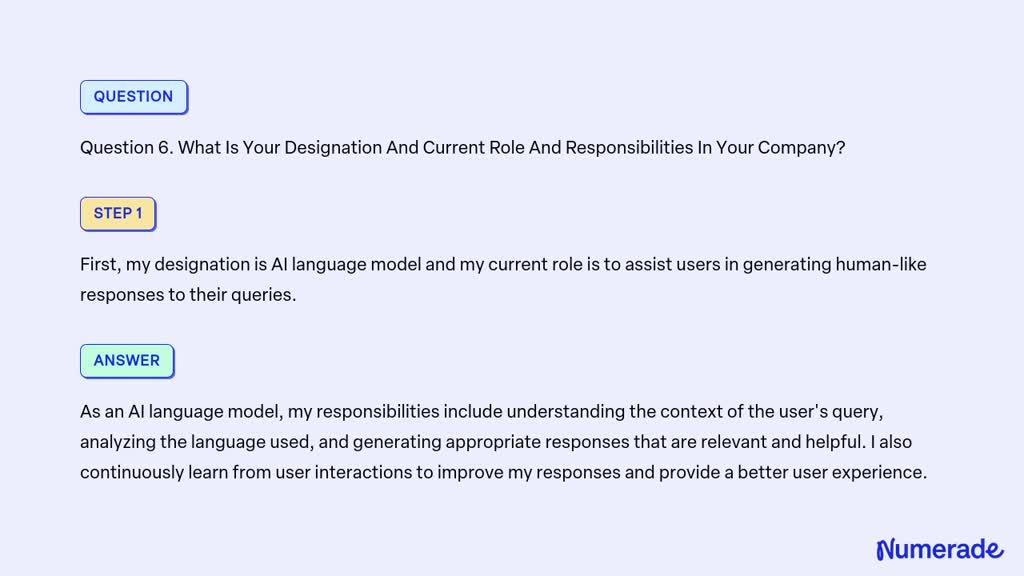Top Notch Tips About What Is Your Designation In Company

Position Vs. Designation What’s The Difference?
Decoding Your Role
1. Understanding the Importance of Job Titles
Ever been at a party and someone asks, "So, what do you do?" It seems simple, right? But sometimes, explaining your role can feel like trying to untangle a Christmas tree light knot. That's where your designation comes in. It's more than just a fancy title; it's a quick snapshot of your responsibilities, your expertise, and where you fit within the grand scheme of your company.
Think of your designation as your professional calling card. It tells people, both inside and outside the company, what you're all about. A clear and accurate designation helps avoid confusion, ensures the right people are connecting with you for the right reasons, and even contributes to your personal branding within the industry. Imagine accidentally directing a client with a complex technical issue to the intern in charge of ordering coffee thats a scenario an accurate designation can prevent! It is very important to have a good designation.
But beyond clarity, your designation also impacts your career trajectory. It can influence the projects you're assigned, the opportunities you're offered, and even your salary negotiations. A well-chosen designation can reflect your growth within the company and position you for future advancements. It can showcase your value and set you apart from the competition.
So, when someone asks, "What is your designation in your company?", you're not just reciting a title. You're communicating a wealth of information about your contributions, your expertise, and your place in the professional landscape. Make sure it tells the right story! It is very important to have a good designation and know what to answer and tell what your role in the company.

Meaning Of Designation English Vocabulary Most Common
Unpacking the Layers
2. Beyond the Title
Alright, let's dig a little deeper. Your designation isn't just a collection of words; it represents a specific set of responsibilities and expectations. A "Senior Marketing Manager," for example, isn't just someone who sends emails. They're likely responsible for developing marketing strategies, managing budgets, overseeing campaigns, and analyzing results. The designation implies a certain level of experience and expertise.
The beauty (or sometimes the challenge) of designations is that they can vary from company to company. A "Project Coordinator" at a small startup might wear many hats, handling everything from scheduling meetings to tracking budgets. Meanwhile, a "Project Coordinator" at a large corporation might have a more narrowly defined role, focusing solely on administrative tasks. Always be sure to check in with the companies you are applying for with regarding the role, designation and what will be your tasks and responsibilities.
Understanding the nuances of your designation within your specific company is crucial. Don't be afraid to ask your manager for clarification on your responsibilities and expectations. A clear understanding of your role ensures you're focusing your efforts in the right areas and meeting the company's needs. Its also a good idea to look at the job description again, just in case you might have missed something!
Consider your designation as a promise — a promise of the skills and capabilities you bring to the table. Its a tacit agreement between you and the company that you're equipped to handle the tasks associated with that role. When you deliver on that promise, you not only contribute to the company's success but also enhance your own professional reputation. Remember, an accurate designation aligns expectations and empowers you to excel.

Navigating the Hierarchy
3. Understanding Your Place in the Organization
Your designation also provides clues about your position within the company's hierarchy. Are you an individual contributor, a manager, or a member of the executive team? Your title often reflects your level of authority and influence. Knowing where you stand in the organizational chart is essential for effective communication and collaboration. Do you need to get approval from someone before doing a task?
For instance, a "Team Lead" is likely responsible for guiding and supporting a small group of employees. They may not have direct reports, but they play a crucial role in ensuring the team's success. A "Director," on the other hand, typically oversees a larger department and has significant decision-making authority. Make sure that you are qualified and capable of taking the role, and designation.
Understanding the hierarchy helps you navigate the company's internal processes and identify the right people to connect with for different needs. It can also inform your communication style, ensuring you're addressing colleagues with the appropriate level of respect and formality. This means knowing when to CC your manager or when to escalate an issue to a higher level. The designation and role can easily determine your tasks and responsibilities.
Think of your designation as a piece of a larger puzzle. Each title represents a specific function and contributes to the overall success of the organization. By understanding your role within the hierarchy, you can better collaborate with your colleagues, contribute to team goals, and ultimately, help the company achieve its objectives. A good designation equals to a good performance review.

The Evolution of Titles
4. Reflecting Growth and Experience
Job titles aren't static. As you gain experience, develop new skills, and take on more responsibilities, your designation should evolve to reflect your growth. A promotion often comes with a new title that accurately captures your expanded role and increased value to the company. Make sure your growth equals to a good designation.
Don't be afraid to discuss your career aspirations with your manager and explore opportunities for advancement. If you feel your current designation no longer accurately reflects your responsibilities, it's time to have a conversation. Document your accomplishments, highlight your contributions, and articulate your desire for a role that better aligns with your skills and experience. It is very important to have a good designation that relates to you.
Sometimes, a title change is more about aligning with industry standards or clarifying your role for external stakeholders. In other cases, it's a recognition of your exceptional performance and leadership potential. Whatever the reason, a title change represents a significant milestone in your career journey. As your work and role evolves, make sure that your designation does too.
Embrace the evolution of your designation as a symbol of your professional progress. It's a testament to your hard work, dedication, and commitment to continuous learning. And who knows, maybe one day you'll be the one creating new designations to reflect the evolving needs of the company! It is very important to have a good designation to reflect the work and success that you have done.

Crafting Your Personal Brand
5. Making Your Title Work for You
Your designation isn't just for internal use; it's also a key element of your personal brand. It's how you present yourself to the world, both online and offline. Make sure your designation accurately reflects your skills and experience, and use it consistently across all your professional profiles, including LinkedIn, your company website, and your business cards.
When networking, use your designation as an opportunity to spark conversations and showcase your expertise. Instead of simply stating your title, elaborate on your responsibilities and highlight your key accomplishments. Tell people what you do and show them how you are going to help them. A good designation equals to a good presentation of yourself.
Your designation can also be a powerful tool for building credibility and establishing thought leadership within your industry. Share insights and expertise related to your role through blog posts, social media updates, and conference presentations. Position yourself as a go-to resource for knowledge and information, and let your designation open doors to new opportunities.
Ultimately, your designation is more than just a title; it's a reflection of your professional identity. Use it strategically to communicate your value, build your brand, and advance your career. Own your designation, embrace your responsibilities, and let your title be a source of pride and inspiration.

FAQ
6. Frequently Asked Questions About Job Titles
Q: What if my designation doesn't accurately reflect my responsibilities?A: Talk to your manager! Explain the discrepancy and suggest a more accurate title. Come prepared with examples of how your responsibilities have evolved.
Q: Is it okay to use a different designation on LinkedIn than my official company title?A: Generally, it's best to align your LinkedIn title with your official company title. However, you can add clarifying details in your profile summary to further explain your role.
Q: How important is it to have a "fancy" designation?A: Substance trumps style. While a compelling title can be helpful, focus on gaining experience and developing valuable skills. A "fancy" designation without the skills to back it up won't get you far. Make sure your performance is good and matches your designation.
Q: Can I negotiate my designation when accepting a new job offer?A: Absolutely! If you believe the offered designation doesn't accurately reflect the scope of the role, you can certainly discuss it with the hiring manager. A negotiation for a good designation is a good idea as well.
Q: Should I include my designation in my email signature?A: Yes! Including your designation in your email signature is a professional courtesy that helps recipients understand your role and responsibilities.